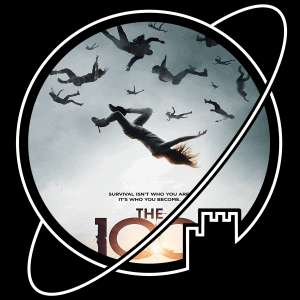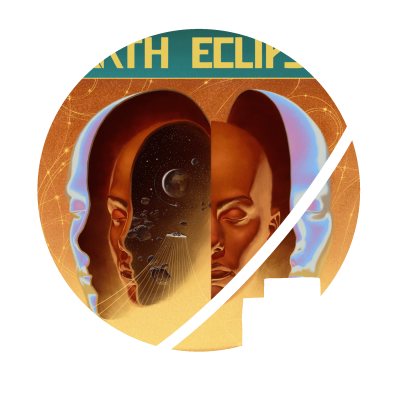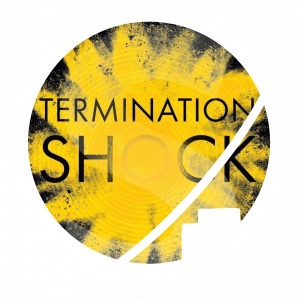Welcome to the Escape Velocity Collection!
We are an opinionated group of friends reviewing all sorts of fantasy and science fiction media. Don’t forget to get to know the curators and visit our curated Collection, where we discuss the stories that never cease to transport us to another world.
Will you escape with us?
LATEST POSTS:
April 16, 2022

Collected on: April 16, 2022
- Book written by Tonke Dragt
- Published in 1962
- Followed by The Secrets of the Wild Wood
On the night before he will receive his knighthood, the young squire Tiuri leaves the chapel of his nightly vigil to answer the call of a stranger asking for help from the dark outside. What initially seems a simple task ends up leading him in a dangerous quest across mountains and kingdoms with pusuers on his tale every step of the way.
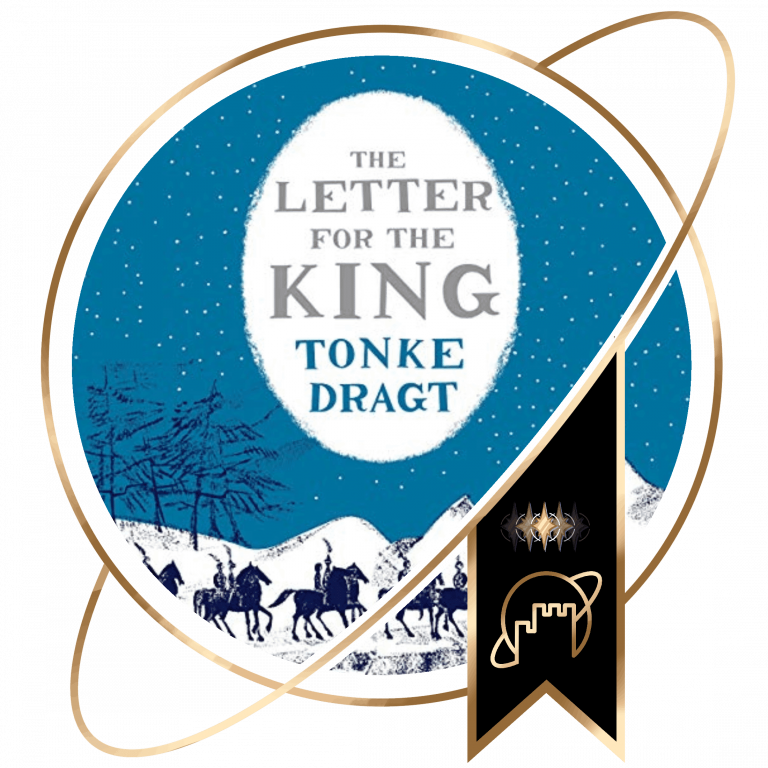
Welcome to this in-depth, spoiler-free discussion of The Letter for the King (Brief voor de Koning) by Tonke Dragt, the masterpiece of Dutch children’s fantasy fiction (and not, mind you, the awful Netflix series), which our curators Peter and Jasmijn are adding to the Escape Velocity Collection, a series of items that we believe represent the absolute peak of what the speculative genre has to offer.
It turns out we don’t have any curator who doesn’t absolutely adore The Letter for the King, so we’re deviating from our format a little bit (we couldn’t find anyone critical enough), so instead, Jasmijn (who’s a primary educator) and Peter (who’s a stuffy old lawyer) are going to talk about why this is a great book for both children and adults! So in short, we’re going to add The Letter for the King to the collection together – and tell you why the next thing you should read is the Tonke Dragt’s magnum opus.
So, to start off – when did you first read The Letter for the King and what did it do to you?
I love this question, because The Letter for the King has won a special place in my heart at a relatively young age. When I was nine this book was the very first big chapter book I read. It was, for me, the gateway to the magic of real stories. I was completely sucked into the story and the adventure of main character Tiuri. After that, I was never to be found without a book.
How about you? How did you get introduced to this timeless classic?
I’m honestly not entirely sure, but given that I read The Lord of the Rings by the time I was nine (I know, why???), it must’ve been at least a couple of years before that. I remember my dad reading the first chapter about Tiuri’s nightly vigil on the cold stone floor of the chapel and falling in love instantly with this story that epitomised everything that I felt a medieval story ought to have. I already loved visiting castles and old towns with my parents, I owned a plastic sword and my mum embroidered a dragon on a surcoat for me. But when my dad started reading The Letter for the King, there really was no turning back: that was the moment my parents doomed me, the first action in a chain of events that eventually led to me becoming a fantasy nerd who writes reviews of fantasy books for a hobby and does H.E.M.A. (historical fencing) for a sport. Tonke Dragt started it all!
Let’s dive in her world and see what that magical book is all about.
Worldbuilding
There’s no two ways about it, the world of The Letter for the King is not particularly original. The story takes place over two medieval European Kingdoms, one with a slightly more north-western European feel, one with a slightly more southern European feel (though some of that distinction may be my imagination). Perhaps the most interesting element is that the characters appear to be Christians, though it doesn’t play a significant role in the story.
At the same time though, I found re-reading the book to be surprisingly refreshing. Sometimes, it feels like the trend in modern fantasy is to go for a dark, more ‘realistic’ world full of long history, complex politics, intriguing magic systems, violence, and a very steep learning curve. The Letter for the King is the antithesis of all that. It presents an unabashedly simple noblebright world of knights and squires, damsels and castles. Even bandit chieftains have honour. A single betrayal in a duel can spark the plot of two whole books.
If all the fantasy in the world were like this, it would get boring. But as it stands, The Letter for the King is an amazing palette cleanser.
For a child who has never read a fantasy book, though…
I feel like you are almost touching upon an excellent point here. As media-devouring adults, we quickly look down upon classic stories, calling them clichés and such. But when you are young, every new genre is a completely new concept. This is why well-written classics like The Letter for the King are important. They are the backdrop for our future story-adventures. The way in which Tonke Dragt has written this knight’s tale is elegant and quick-paced. The story is exciting, especially when you are younger, because you don’t know yet about fantasy tropes.
Also, I have to add that I would have never even considered this book to be eligible for the fantasy genre. Which is probably why it is a perfect gateway to books that are more high-fantasy. The medieval setting creates a familiar starting point since even young children have some basic knowledge of the world of knights and castles. Which is definitely not always the case when we move into the sci-fi realm.
Characters
This book is considered a great read for twelve-year olds. However, one of the reasons it is still a comfortable read for adults is the ways in which our main characters is usually not an idiot. I have read/watched my fair share of children’s media, and ‘teenagers making stupid choices’ is something that can get on my nerves quite quickly (looking at you, Shannara chronicles). Tiuri doesn’t always make the right choice, but he does seem to understand the urgency of his task.
I agree, I love that Tiuri is allowed to make mistakes – and has to persevere through some hardships – without adversity becoming the core of his character.
My own favoured character is Sir Ristridin of the South, whom I like to call ‘’the Dutch Aragorn”, the noble and wise questing knight with his silver horn, wandering the land looking for vengeance and adventure. Ristridin is a classic character played straight (he would not look out of place at King Arthur’s court at Camelot), but one which drew me in and inspired me like no other when I read about him as a kid. Perhaps it is because the book is a little bit older, but I love that Dragt felt at liberty to just write a character that is the pinnacle of the knightly ideal in a kid’s mind, with no caveats or subverted expectations. It is great for kids but even as an adult, it just fills your heart with joy and, for me, a certain nostalgia to simpler stories, where the good guys were good and the bad guys bad.
Age
A I said, The Letter for the King is a bit on the older side: it was published in 1962. Obviously, the book’s age is not going to play as much of a part for more grown up readers as it will for children, and I think that apart from an odd choice of word here or there, there is very little holding it back for modern readers (besides, that shouldn’t be a problem if you’re reading in translation). There’s the odd christianity reference that seems a bit out of place in modern fantasy, but they are few and far between – and I think they fit well with the world that is relatively closely based on medieval Europe. So the real question is – do you think that also goes for today’s children?
Of course, this book will not be a good fit for all children, in the same way adults have their preferences in literature. It is most definitely not considered an easy read for kids. In general, I would recommend the book to readers age 12 and up. Since the story is set in medieval times, it seems like kids accept the archaic language more easily. But the book was written with the younger audience in mind. Language that is specific for the medieval setting, is usually explained in the context of the story. As a primary school teacher, one of my goals is to find ways to bring new and fitting books to the attention of my pupils. Re-reading this book I was surprised by the bite-sized chapters, which makes it a perfect read-aloud. The biggest tell this book is old? All cool main characters are male: maybe when reading to your kids genderbend a character, or two.
Conclusion
Whether you are looking for a gift for yourself or for someone else, a story for fantasy newbies or sci-fi nerds, or a book to read out loud in your classroom: you have found it. The Letter for the King is most definitely a classic for a broad target audience. Translated in more than 30 languages, you might even be able to find it in your mother tongue, or in a language you are learning. Just don’t watch the series (you can find our review on that HERE).
- Book written by Tonke Dragt
- Published in 1962
- Followed by The Secrets of the Wild Wood
On the night before he will receive his knighthood, the young squire Tiuri leaves the chapel of his nightly vigil to answer the call of a stranger asking for help from the dark outside. What initially seems a simple task ends up leading him in a dangerous quest across mountains and kingdoms with pusuers on his tail every step of the way.

This book is the very first lengthy story I read as a child, which gives it a special place in my heart. Whilst children of today deserve contemporary stories, there are some classics everyone should have read when they were young. This book, filled with adventure and suspense definitely falls in that category. But even nowadays, when rereading it, the story holds up. What surprised me, was the quick pace and the short chapters, which makes it a perfect book to read aloud. The biggest tell that it is a book written in the sixties? All the protagonists are boys. Nevertheless, this is a knight’s tale fit for all genders and all ages.

The Letter for the King is the best Dutch fantasy book ever written. The only other contender for the top spot is The Secrets of the Wild Wood, the second part in the duology (and maybe The Goldsmith and the Master Thief, also by Tonke Dragt). You’re welcome to try to fight me on this.
The Letter for the King is a children’s book, yes. But I would argue that even as a grown up, it is an amazing read.
The reason is that The Letter for the King is so wonderfully refreshing. It is an honest-to-God noblebright world in which characters can be genuinely shocked if an oath is broken, in which knights – on either side – behave with dignity and honour, in which bandits back off in the face of true conviction. The plot is full of suspense but never overly complex. Tiuri’s story is not all about fighting, but also about being clever and being kind at the right times.
The Letter for the King is worth reading as an adult because it will transport you to a different world same as any other fantasy book might, but in an utterly comfortable way. Allow yourself to be that kid swinging sticks in the woods again, or going to that castle with your parents and seeing the actors joust. The Letter for the King will bring you back there.
You can find my discussion with Jasmijn on why The Letter for the King ought to be a centrepiece in your collection here.
Tagged:
- TV series created by Rebecca Sugar for Cartoon Network
- Starring Zach Callison, Estelle, Deedee Magno Hall, Michaela Dietz
- November 4th, 2013 - January 21st, 2019
- 5 seasons, 160 episodes of 11 minutes each
A young boy called Steven lives his life with the Crystal Gems, three magical, humanoid aliens. Being half-Gem himself, Steven helps the Gems to protect the world from alien dangers, meanwhile struggling with the legacy of his dead mother and the normal challenges of a child’s life.

This series starts out as most other wacky animated series. You watch Steven’s silly endeavours and are charmed by his childlike spirit and humour. As the episodes continue in an easy-going manner, you don’t really expect there to be a big overarching plot or any high stakes at all. Just a comfortable watch.
And then, suddenly, an episode will come that will turn everything upside down! You realise that intricate worldbuilding, complicated characters and enthralling plot have been there all along, right under your nose. You simply didn’t recognize it.
Steven Universe is a coming-of-age story with a lot of layers. At multiple points throughout the series, you’ll feel inclined to revisit earlier episodes to look for clever foreshadowing and character motives hidden in plain view. The emotional themes this series explores – such as trauma, grief and self-love – are expertly handled. Most grown-ups can definitely still learn a thing or two from the life lessons taught through Steven’s story.
This series is definitely a gem (pun intended).
Tagged:
- Movie directed by Wes Ball
- Based on The Maze Runner books by James Dashner
- Starring Dylan O'Brien, Ki Hong Lee, Kaya Scodelario, Thomas Brodie-Sangster, Rosa Salazar, Giancarlo Esposito, Aidan Gillen, Patricia Clarkson
- Released 26 January 2018
- Runtime: 143 minutes
- 3rd part in The Maze Runner film series
After running for their lives, Thomas and the other ‘Gladers’ finally decide to take the fight to WCKD instead. Intent on freeing their captive friends and finding a cure to the Flare-sickness, Thomas and his friends set their eyes on the Last City, one of the last safe bastions in the world and home to WCKD’s headquarters.

The final installment in this series differs little from the previous movies when it comes to narrative. The plot is simple (and at times even poorly portrayed), but it lends itself well to spectacular action scenes that are fun to watch. The characters are as they have been established in the previous movies, and will do little to further win you over. Though, I must admit I was somewhat charmed by Teresa’s arc and appreciate it for what it could have been. Also, Aiden Gillen is still there…
There is not much left to say, really. Maze Runner: The Death Cure delivers a suitable, bittersweet ending to the series. Easy escapism in a world with some interesting worldbuilding concepts.
- Book written by Emily St. John Mandel
- Published September 2014
On the night a deadly flu pandemic hits the city of Toronto, famous actor Arthur Leander suffers a heart attack and dies on-stage during a performance of King Lear. While the pandemic continues to spread, the people in Arthur’s life start to realise that the world as they know it is coming to an end.
Twenty years later Kirsten, one of the child actors who witnessed Arthur’s death, travels between settlements in the post-pandemic world together with a company of actors and musicians. As they try to keep something of the old world alive in their performances of Shakespeare’s plays, they will have to navigate the dangers of their new world.
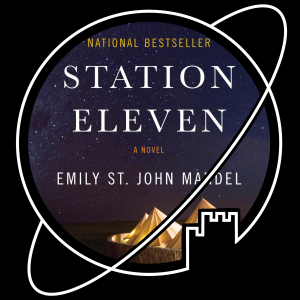

Since this book is about a deadly pandemic, I can understand if now (2022) is not the time for you to pick it up. However, I have personally found myself oddly drawn to this subject (and to post-apocalyptic fiction in general) since the beginning of the pandemic. Of the several post-apocalyptic books that I have read during this period, Station Eleven was probably my favourite. It has a great set of characters and immediately draws you in with its mysterious atmosphere.
The majority of the book takes place either just before, or twenty years after the time of the outbreak, so the story does not go into much detail about the collapse itself. This creates some distance between these events and the reader. Both the scenes from before and from after have the same wistful, dreamlike quality about them which somehow made the book feel quite serene despite its heavy subject matter.
It becomes clear very soon that the different characters that we follow are somehow connected, and I found the way in which this mystery is resolved very satifying. All in all a great reading experience, if you feel up to it. I have just started watching the recent HBO adaptation of this book, so keep your eye out for a review of that as well!
Tagged:
- Audio drama written by Alexa Polivka
- Produced by The Lunar Company
- Released in 2021-2022
- Starring Allegra Rodriguez Shivers, Christian T. Chan, Reginald West, Amy Lyndon, and others
In a future where humans live throughout the galaxy, Alexine Prometh is close to a ground-breaking discovery. Her Abacus Project could change the human mind. For the better, she thinks, but are the plans of her company with ties to the government just as benevolent? And will anybody try to stop her research?

Earth Eclipsed is a nice don’t-think-too-hard-and-come-along-for-the-ride science fiction audio drama. The production quality is good, the plot is fine. It’s not complicated, but it does not try to be: bad guys vs good guys, fighting, heisting and scheming in space. Maybe not really my cup of tea, but amusing nonetheless.
However, there were a couple of things that let this audio drama dip below the bar of 3 stars. After the first two episodes, the writing was really getting me angry. A bit cheesy is fine for this kind of story, but there are limits. You can only hear so much ‘No, I can’t tell you, it is just too painful’ and ‘There is a lot you don’t know about me’. And it got worse. In combination with some bad accents (supposed to be French? Russian? Space European?) and character clichés, I had to have a bucket ready.
My expectations were lowered and I thought about quitting, but I am glad I continued, because I was pleasantly surprised by the last episode. It saved the day and let me end with a relatively good feeling about the series.
Tagged:

Collected: Letter for the King by Tonke Dragt
COLLECTION: On the night before he will receive his knighthood, the young squire Tiuri leaves the chapel of his nightly vigil to answer the call of a stranger asking for help from the dark outside…

Review: Letter for the King – Tonke Dragt
On the night before he will receive his knighthood, the young squire Tiuri leaves the chapel of his nightly vigil to answer the call of a stranger asking for help from the dark outside…

Review: Steven Universe – Cartoon Network
A young boy called Steven lives his life with the Crystal Gems, three magical, humanoid aliens. Being half-Gem himself, Steven helps the Gems to protect the world from alien dangers, meanwhile struggling with the legacy of his dead mother and the normal challenges of a child’s life.

Review: Maze Runner: The Death Cure – 20th Century Fox
Review of the movie Maze Runner: The Death Cure. After running for their lives, Thomas and the other ‘Gladers’ finally decide to take the fight to WCKD instead.

Review: Station Eleven – Emily St. John Mandel
On the night a deadly flu pandemic hits the city of Toronto, famous actor Arthur Leander suffers a heart attack and dies on-stage during a performance of King Lear. Twenty years later Kirsten, one of the child actors who witnessed Arthur’s death, travels between settlements in the post-pandemic world together with a company of actors and musicians.
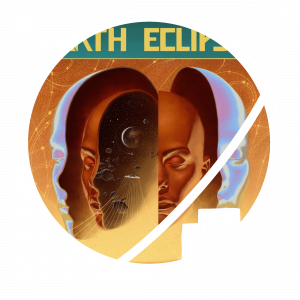
Review: Earth Eclipsed – The Lunar Company
In a future where humans live throughout the galaxy, Alexine Prometh is close to a ground-breaking discovery. Will anybody try to stop her?



















